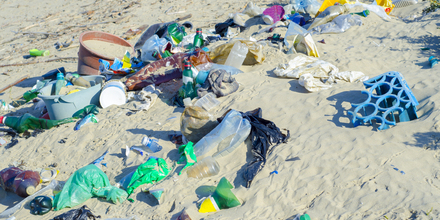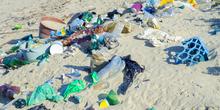Natural Resources & Waste
Our Work
Latest in Waste Legislation & Policy
-

Plastics, Marine Litter and the Circular Economy
Briefing and three product fiches explore circular economy solutions for reducing the flow of plastic waste into the oceans.
-
The cascading use of woody biomass in the EU – challenges, opportunities and policy solutions
Improving the resource efficient use of wood through cascading the resource from one use to another, requires action throughout the wood flow. Current efforts focus on recovering and re-using waste wood but more could be done with the production and utilisation of wood processing residues and improving the balancing between the material and energy use of wood.
-
Mapping study on the cascading use of wood products
Promoting the cascading use of wood through policy is one approach to improve resource efficiency and increase the overall availability of wood for use in a variety of sectors.
-
The Manual: Chapter 6 - Waste
This is a chapter of IEEP’s Manual of European Environmental Policy. This chapter on EU waste policies focuses on the management of waste, the environmental requirements with which waste management installations must comply and the big picture policy initiatives focused on waste.
-
Environmental policy and the UK’s review of the EU Balance of Competences
The UK Government’s Balance of Competences review has now taken evidence on 25 subject areas, including the 6 with the most relevance for the Environment. We take stock of the IEEP’s contributions, and consider what a possible UK renegotiation might mean for the environment.
-
EU waste law: the challenge of better compliance
Waste management in the EU is improving, but implementation by the Member States of EU waste legislation remains patchy. This paper makes suggestions on how better compliance could be achieved.
-
Economic instruments to improve waste management
This report investigates a range of economic instruments in place in the EU Member States to improve waste management. It focuses on disposal taxes, pay-as-you-throw systems and producer responsibility schemes, and attempts to assess their contribution to waste management performance.
-
Review of the Waste Thematic Strategy
This report supported the European Commission’s review of the Thematic Strategy on the Prevention and Recycling of Waste. It summarises available data on waste management in the EU, assesses progress towards the EU becoming a ‘recycling society’, outlines the achievements of the Waste Thematic Strategy, and makes recommendations for the development of future EU waste policies.
Highlights
-

Plastics, Marine Litter and the Circular Economy
Briefing and three product fiches explore circular economy solutions for reducing the flow of plastic waste into the oceans.
-

The cascading use of woody biomass in the EU – challenges, opportunities and policy solutions
Improving the resource efficient use of wood through cascading the resource from one use to another, requires action throughout the wood flow. Current efforts focus on recovering and re-using waste wood but more could be done with the production and utilisation of wood processing residues and improving the balancing between the material and energy use of wood.
-

Economic instruments to improve waste management
